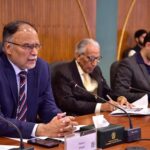UNITED NATIONS, May 25 (APP): With Pakistan abstaining, the UN General Assembly has voted to include the Responsibility to Protect (R2P) and the prevention of genocide, war crimes, ethnic cleansing and crimes against humanity as part of its permanent agenda, after a contentious debate.
The 193-member Assembly did so by adopting a resolution, sponsored by a group of states, with a vote of 115 in favour to 15 against, with 28 abstentions.
The vote followed a day-long debating session during which delegates expressed sharply divergent viewpoints on the nature, scope and application of the responsibility to protect, an international norm that nations have an obligation to protect their populations against genocide, war crimes, ethnic cleansing, and crimes against humanity, and that the world community must assist if necessary.
This year’s debate was particularly relevant in the light of the Israeli aggression against the Occupied Palestinian Territory and the protection needs of the suffering Palestinian civilians.
Explaining Pakistan’s decision to abstain in the voting, Saad Warraich, a counsellor at the Pakistani Mission to the UN, said that the failure of the international community to uphold the norms of the responsibility to protect were most evidently manifest as the Israeli bombs-hit Gaza was drenched in the blood of over 250 Palestinians, including women and children.
He regretted that the UN Security Council had stood as a silent bystander to the plight of the long-suffering Palestinian people.
In contrast with the inaction to address the grave situation in the Palestinian Occupied Territory, diplomats here pointed to western interventions in Libya and Syria.
In his remarks, Warraich, the Pakistani delegate, said that the inaction of the Security Council was not due to the absence of legal norms to prevent egregious crimes, but due to lack of ‘political will’ on part of some to act.
He stressed that the calls for accountability would invariably smack of “double standards and selectivity”, especially when the international community does not act to prevent egregious crimes including mass killings, deliberate and prolonged lockdowns and systematic attempts to impose new demographic realities, in Palestine and other occupied territories, such as the Indian Illegally Occupied Jammu and Kashmir (IIOJ&K).
“What is needed is not an abdication of our collective responsibility to prevent these grave crimes, but to act in a consistent and uniform manner against all transgressions, wherever and by whomsoever, in an objective and impartial manner, the Pakistani delegate said, adding that that was the standard against which any initiative on the ‘Responsibility to Protect’ must be calibrated.
He said that discussions must now focus on bridging the differing perspectives on the responsibility to protect and that persistent focus on institutionalizing the debate would further deteriorate work related to the concept.
In the voting, Western and Latin American countries mainly supported the draft –both the US and Israel — voted for it; China, Russia, Iran, Indonesia, Egypt, Venezuela and Syria were among those who voted against — India also abstained.
The resolution’s proponents were a cross-regional group of over 60 countries led by Croatia, Qatar, and Costa Rica.






